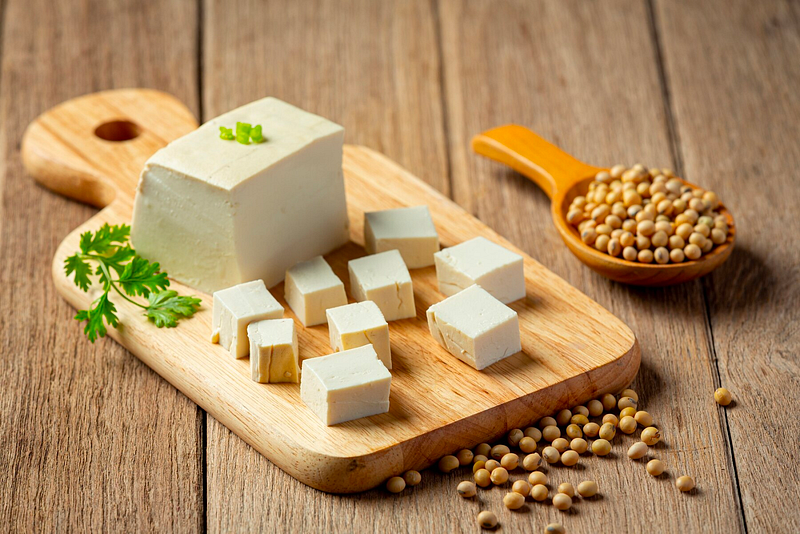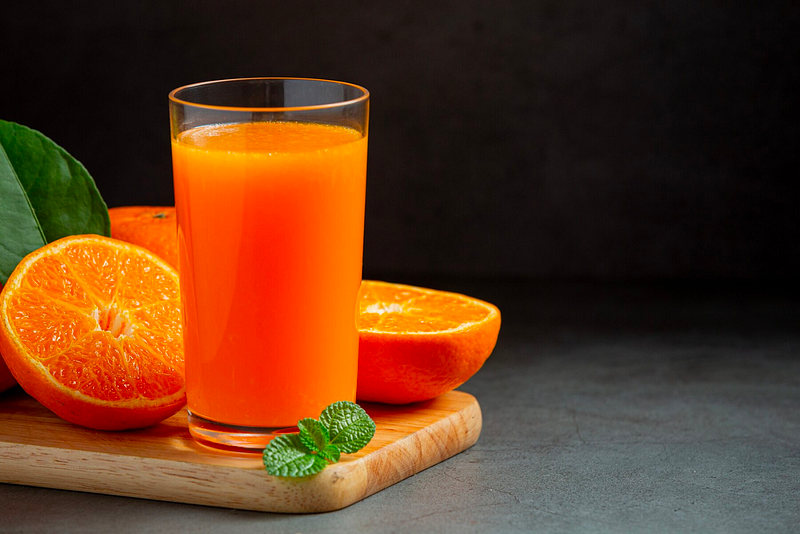In our pursuit of a healthier lifestyle, we often fall victim to deceptive marketing and misconceptions surrounding certain foods.
A recent discussion in our large Facebook community shed light on foods that people commonly perceive as healthy but, in reality, may be doing more harm than good.
There are foods that seem healthy or that you think are healthy, but really aren’t.
Let’s unravel the truth behind these seemingly virtuous choices and empower ourselves to make informed dietary decisions.

1. Fat-Free Folly: The Illusion of Healthiness
The fat-free craze that emerged several decades ago as a response to combat heart disease might be misleading.
While the intention was to reduce fat intake, removing fat from foods often means adding sugars and carbohydrates to maintain flavor.
This well-intentioned strategy could inadvertently contribute to health issues, as not all fats are unhealthy, and the quality of fats matters.
Let’s look further at unhealthy foods you thought were healthy.
2. Beyond Meat: The Dark Side of Vegetarian Alternatives
The rise of vegetarian burgers, exemplified by Beyond Meat, has caught the attention of health-conscious consumers.
However, these alternatives may harbor rancid oils, genetically modified ingredients, and excessive levels of carbohydrates and sugars.
Choosing organic and minimally processed plant-based options could be a more prudent approach.
3. Tofu Troubles: The GMO Conundrum
Tofu, often considered a healthier alternative to meat, may not be as healthy as it seems.
Traditional tofu is frequently derived from genetically modified organisms (GMOs), which can introduce altered DNA into our system.
The potential consequences include gut issues, autoimmune disorders, and inflammation.
Opting for cleaner versions or exploring alternative plant-based protein sources might be a wiser choice.
Let’s continue taking a closer look at “healthy” foods that are terrible for you.

4. Fruit Juice Fallacy: A Sugary Trap
Fruit juices, especially those marketed towards children, can be laden with sugar, often surpassing recommended daily limits.
Stripping the juice of its natural fiber negates its inherent anti-sugar effects, leading to an influx of fructose and potential health issues such as fatty liver disease and elevated triglycerides.
This is just another one of the popular foods that people think are healthy.

5–6. Gatorade and Sugar-Free Deceptions: Not as Healthy as Advertised
Gatorade, a popular choice for athletes, is not as wholesome as its branding suggests.
It’s packed with sugar and artificial additives that may contribute to concentration problems and hyperactivity.
Similarly, sugar-free and diet drinks, while seemingly healthier, can often contain neurotoxins linked to various health concerns, including joint inflammation.
7. Nutella’s Sweet Deception: More Sugar Than You Think
Nutella, a beloved spread for many, hides a plethora of potential health pitfalls.
From its rancid palm oil to processed cacao and heaps of sugar, indulging in Nutella can be equivalent to consuming five Oreos at once.
Unraveling its layers reveals a concoction that is, essentially, diabetes in a jar.
8. Yogurt: Probiotic Promise or Sugar Trap?
While yogurt is often praised for its probiotic content, the reality is that many commercial yogurts contain alarmingly high levels of sugar.
The quest for a healthy gut might be better served by exploring alternative sources of probiotics, such as sauerkraut, without the added sugar and potential hormones found in yogurt.
9. Cheerios: Not the Heart-Healthy Choice You Thought
Cheerios, often endorsed for their heart-healthy benefits, may not be the optimal choice.
Loaded with carbohydrates and potentially sprayed with glyphosate, a known gut disruptor, they could lead to increased triglycerides and pose risks associated with genetically modified organisms.
10. Granola Bars: The Sugar Bomb in Disguise
Granola bars, marketed as convenient and healthy snacks, may not be as nourishing as they seem.
Many popular brands have high sugar content, potentially rancid oils, and genetically modified organisms.
These bars might contribute to metabolic issues rather than supporting a healthy lifestyle.
11. Ensure: More Than Just Empty Calories
Ensure, often recommended for those needing additional calories, comes with a price.
Packed with various sugars, artificial sweeteners, synthetic vitamins, and rancid oils, it may ensure caloric intake, but it also introduces a host of potential health issues.
12. Canola Oil: The Not-So-Healthy Cooking Companion
Canola oil, commonly deemed a healthy cooking oil, undergoes a denaturing process that may congest cells and contribute to weight gain.
Its use of hexane and the need for deodorization raise concerns about its impact on the body’s fluid balance and overall toxicity.

13. Margarine: A Colorful Deception with Hidden Dangers
Once marketed as a butter substitute, margarine undergoes an intricate process involving bleaching and deodorizing.
Often laden with potentially rancid oils, genetically modified organisms, and heavy metals, margarine may be more harmful than beneficial to our health.
Conclusion: Making Informed Choices for a Healthier Future
In the quest for a healthier lifestyle, it’s crucial to look beyond marketing claims and delve into the true nature of the foods we consume.
By understanding the potential pitfalls of seemingly healthy choices, we can make more informed decisions about what goes into our bodies.
Let this exploration be a guide to navigating the often deceptive landscape of food choices, paving the way for a genuinely healthier future.












